Dummies for babies: The pros, the cons and when to stop using them
Find out whether giving your baby a dummy really will mess up their speech (probably not), and the dummy pros and cons from the experts.
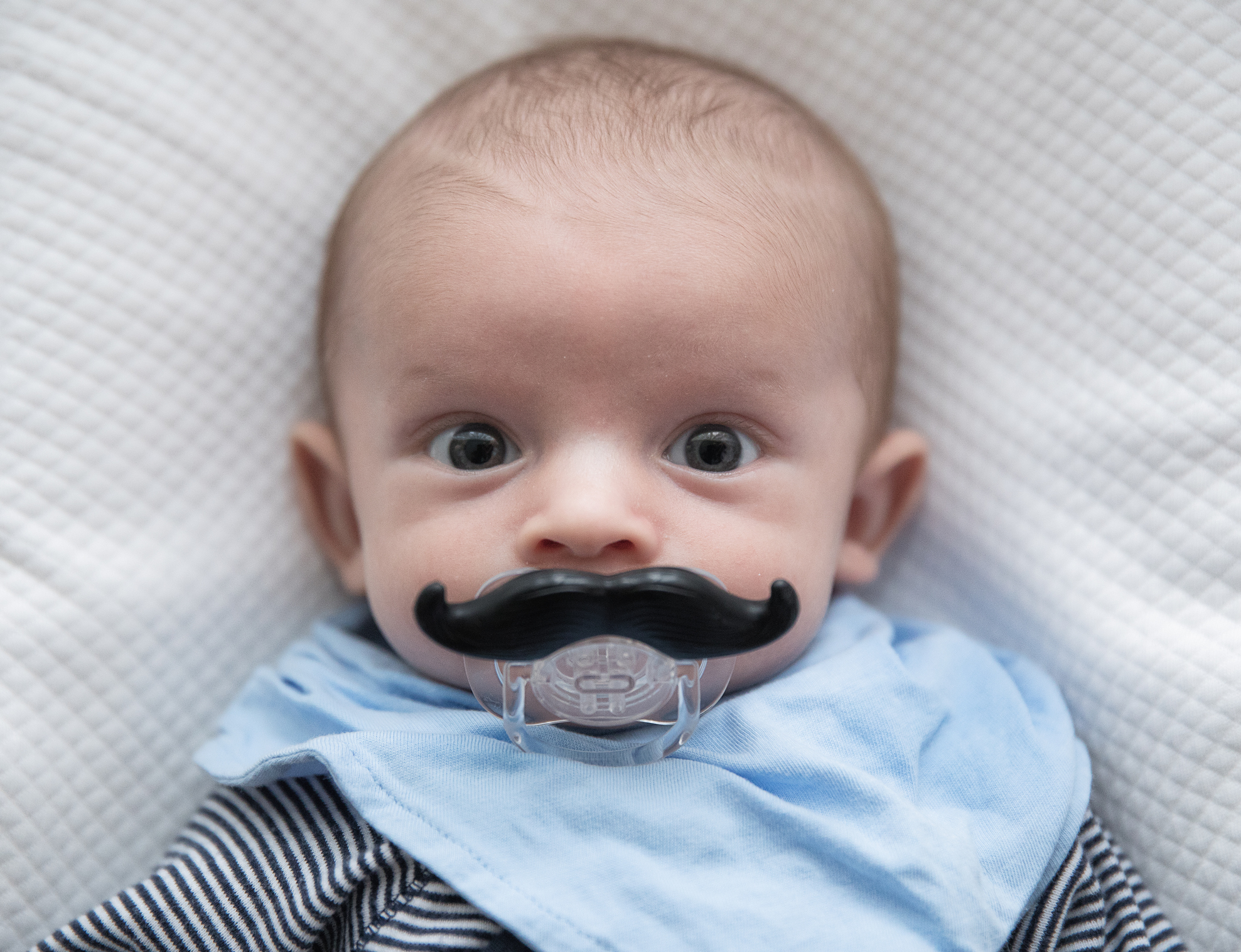
Parenting advice, hot topics, best buys and family finance tips delivered straight to your inbox.
You are now subscribed
Your newsletter sign-up was successful
Dummies can be a controversial topic. For many parents and children they bring comfort and relief, yet for others they are a bad habit that's best avoided.
For a new parent, dummies for babies can feel like a mind-boggling world. Are dummies really bad for your child? Will they become addicted to their dummy? And how can you get a good night's sleep without one? Dummies are not good or bad in themselves - it's how you use them that matters. If you feel comfortable, and a dummy is right for you and your baby, then that's the right decision to take.
Dummies may become a problem if they're used all day and all night, and without teaching babies how to self-soothe without them. Dummies should preferably only be used occasionally, only associated with sleeping or nap times, and only up until 12 months of age. There is a lot of conflicting advice on dummies, even from medical experts. Dummies are therefore a controversial and emotionally charged topic. We've outlined the facts (and some of the fiction) about baby dummies so you can make up your own mind.
Why do parents use dummies? What are the advantages of a dummy? What are the disadvantages of using a dummy? When should I give my baby a dummy? At what age should you stop using a dummy? Do dummies affect speech development? Are dummies bad for my baby's teeth? Do dummies reduce the risk of sudden infant death syndrome (SIDS)? Do dummies stop babies breastfeeding? How can I get my child to give up their dummy?
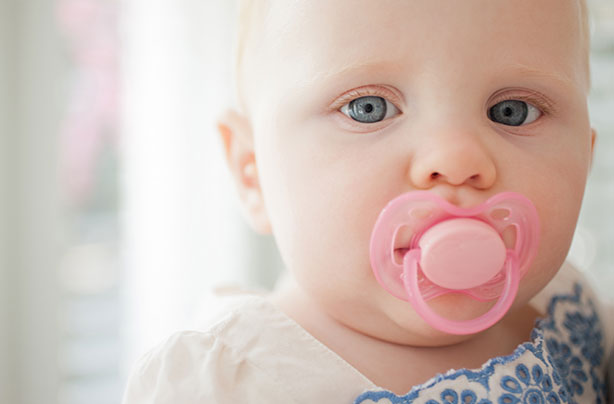
Why do parents use dummies?
Dummies, which are also known as pacifiers, a binky or soothers, are a device that babies suck on to calm themselves down when crying, restless, or struggling to sleep.
Some parents believe that a dummy is a natural soother for a baby, as it replicates a mother's nipple and the action of sucking feels similar to breastfeeding. Babies find the suckling reflex relaxing, which is why many children suck their thumb. Dummies are a safe way for young babies to get that suckling reflex satisfaction whilst not breastfeeding.
"Dummies can be a life savour in the first few months," says The Parent & Baby Coach, Heidi Skudder. "This is particularly true for babies who are colicky or windy. I tend to advise parents to try to remove the dummy before four months of age, as some babies hit the four-month sleep regression and end up with very broken sleep as a consequence. If you do decide to use a dummy, try and use sparingly. As the less baby uses it, the less likely they are to rely on it. That said, if they do come into any sleep difficulties because of the dummy, it can be easy to take away."
Parenting advice, hot topics, best buys and family finance tips delivered straight to your inbox.
But do all babies need a dumy? Not necessarily. Not all babies like dummies. Do not force a dummy onto a baby who has their mouth shut or turns away.
Are dummies good or bad for babies?
They are a little bit of both, is probably the best answer. Medical experts have found evidence both for and against dummies, which is why the topic is so confusing for parents. In 2005 The American Academy of Pediatrics reported that dummies protect against sudden infant death syndrome, for example. However, in 2009 the World Health Organization stated that breastfeeding infants should never be given artificial nipples. This conflicting advice demonstrates that there is medical evidence for both sides of the argument.
In addition, parenting is a complex process so scientists cannot always study dummies separately from other parental influencing factors. They therefore cannot say with certainty whether the dummy alone causes attachment, distress or other issues.
What are the advantages of a dummy?
People who are in favour argue that dummies have the following benefits:
- Help settle babies to sleep, especially if they wake up in the night.
- Enable babies to self-soothe if they're grizzling.
- Dummies can help babies on a flight, as suckling balances out their ear pressure and reduces discomfort.
- There is some evidence that dummies can reduce the risk of SIDS.
What are the disadvantages of using a dummy?
Parents and professionals who are against dummies argue that:
- Babies should learn to soothe themselves without a dummy so they're more able to sleep as they get older.
- Some experts argue that dummies delay speech or can cause dental issues later in life.
- Dummies can carry bacteria if they're not cleaned regularly and thoroughly.
- Babies ear canals are particularly at risk of infection as sucking opens up the ear passage.
- Very young babies might suffer from nipple confusion and stop feeding on the breast, as they think it's a dummy. However experts are again divided on this: A report in the 2015 Journal of Perinatology found very little evidence to link nipple confusion with dummy use. They suggested that babies refusing the breast might be correlated with other maternal or infant characteristics, rather than causing it.
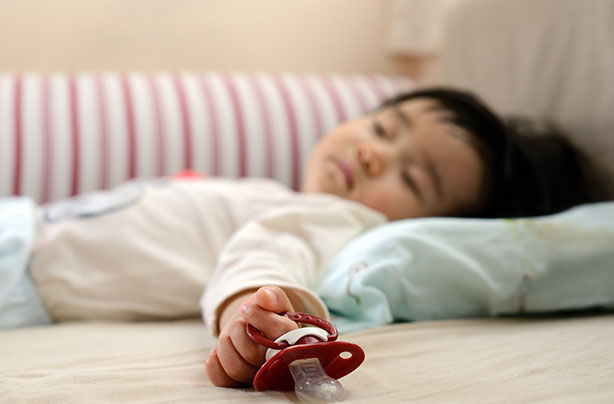
At what age can a baby have a dummy?
It's recommended to wait until your baby is at least four weeks old before using dummies, or preferably wait up to six or eight weeks. This is because in the first few weeks of life your baby is learning to breastfeed or take milk from the bottle. They have to learn how to use their tongue, lips and swallowing action to get milk from the nipple or teat. If you give them a dummy too early, it can create confusion between feeding and suckling, which could lead to feeding problems.
When should I give my baby a dummy?
Try to give your baby a dummy for limited time periods, and only when associated with sleep. If you give your baby a dummy throughout the day and night, they will become more attached to it and it will be more difficult for them to let it go at a later stage. If your baby associates a dummy with naps or nighttime, like a teddy bear or a comfort blanket, they will understand that it's not something they need all the time.
Try not to put your baby to sleep with a dummy. Use self-soothing methods to get your baby to sleep initially, and only use a dummy as the last resort if they wake up during naps or in the middle of the night.
"If dummies are used only as a sleep cue they can be really helpful," says Corinna Nicol, founder of The Mummy Circle early parenting community. "However dummies become a problem when babies or toddlers are reliant on them, and want to keep them in their mouth all day too."
What age should you stop using a dummy?
You can stop using a dummy at any time. However you should aim to stop using a dummy by 12 months.
If you stop using dummies with your baby at three months, their memory of relying on this as a soothing mechanism will fade relatively quickly. However, it may become more difficult to wean your baby off a dummy between six months and a year because your child could become more reliant on it. That said, if you have only used a dummy specifically at nap times or during the night on occasions, you should find your baby is more able to give the dummy up.
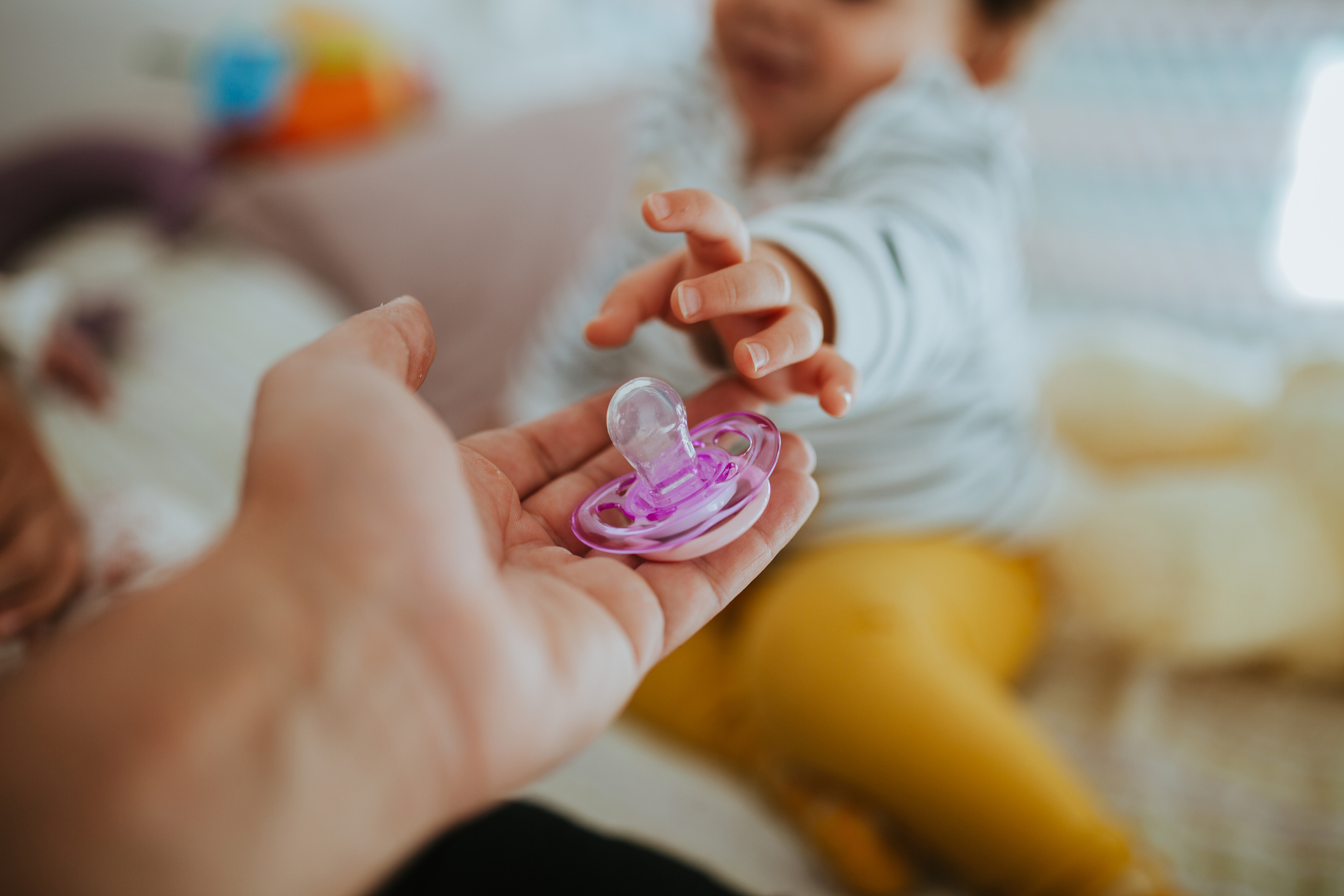
Do dummies affect speech development?
Experts are divided on this. Recent research from the University of Sydney in the Folia Phoniatrica et Logopaedica journal showed that there was no association between a history of dummy or thumb sucking and young children having speech impairments. Instead, they found that phonological impairment (the most common speech disorder in children) had more to do with how children learnt or heard sounds.
That said, if a toddler is still using a dummy whilst they're learning to speak, they often move the dummy to the side of their mouth and talk with the dummy in. This could lead to bad habits and difficulties with tongue development.
Are dummies bad for my baby's teeth?
According to the National Literacy Trust, prolonged dummy use has been associated with dental cavities and the imperfect positioning of teeth, also known as dental malocclusion. However expert opinion is again divided on this. Some children do seem more prone to teeth problems as a result of dummies. Thumb sucking is still considered by many to be more hazardous than dummies as it exerts more pressure on the teeth. Orthodontic dummies offer a safer alternative because they're designed to fit the palate and give the baby's tongue more space to move.
http://www.youtube.com/watch?v=verArFqktsI
Do dummies reduce the risk of sudden infant death syndrome (SIDS)?
The research is currently unclear. A 2006 study in the British Medical Journal reported that dummies seemed to reduce the risk of SIDS. However other doctors criticised this study, stating that the conclusion made was too strong. Inaccurate reporting or exaggeration of research findings could also cause confusion for practitioners and parents. The BMJ argued that: "The conclusion should be modified to reflect this lack of certainty and to reflect observed association rather than suggesting a cause and effect relationship."
According to Basis, an evidence-based resource on baby sleep, the UK Department of Health does not currently recommend dummies as a way of reducing the risk of SIDS. However some SIDS prevention organisations still do recommend them. This is primarily because it's thought that babies with a dummy are less likely to roll onto their front, it keeps their tongue forward, and they tend to lie more still and therefore not be at risk of smothering from blankets.
The NHS reports that the only reasons known to increase the risk of SIDS, however, are exposing a baby to cigarette smoke, allowing them to overheat, or not putting a baby to sleep on their back. Dummies are therefore not the only factor in SIDS.
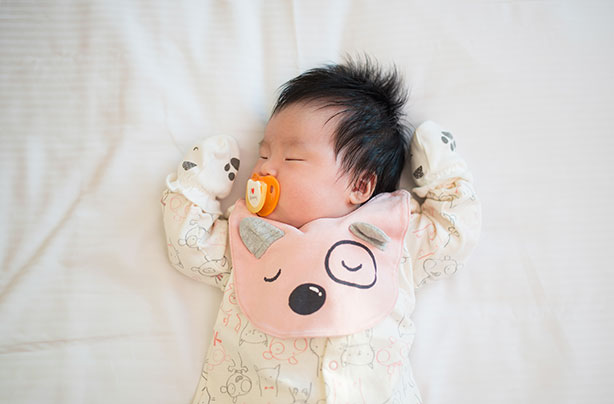
Do dummies stop babies breastfeeding?
Dummies should only be given to babies once their feeding cycles have been established. Taking a dummy doesn't specifically stop a baby from feeding. However, if you're concerned about your baby's ability to latch and suckle then it's recommended to focus on feeding first.
How can I get my child to give up their dummy?
Once a child gets to one year and above, you may find they develop more attachments. If you're prepared to suffer a few days of protest you can usually wean a baby off a dummy quickly:
- Set a date. Pick a quiet weekend when it doesn't matter if you have a few broken night's sleep. Make sure the time is right for your child too; don't think about taking the dummy away if they're going through a difficult time. This includes if you've just had a baby, moved house, or your child's been recently ill. These are not good times to take away your child's comforter.
- Replace it. If they're worried about going to bed without the dummy, give them something to cheer them up. A special teddy to cuddle or a new duvet cover can make bedtime more attractive.
- Praise them. Focus on the time your child does sleep through without a dummy and give them lots of praise. This should build their confidence and also help you stay in a positive frame of mind.
- Try not to back down. If your child manages one night dummy-free they can manage the next, and so on. Do not give in if they suddenly decide they want the dummy back. This will help maintain confidence for you and the child.
You may also want to try this method to get rid of your baby's dummy:
http://www.youtube.com/watch?v=pIGs1yZXOF4